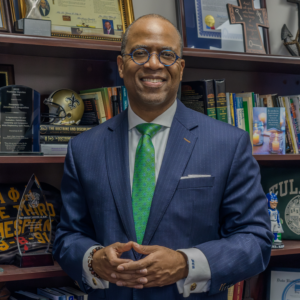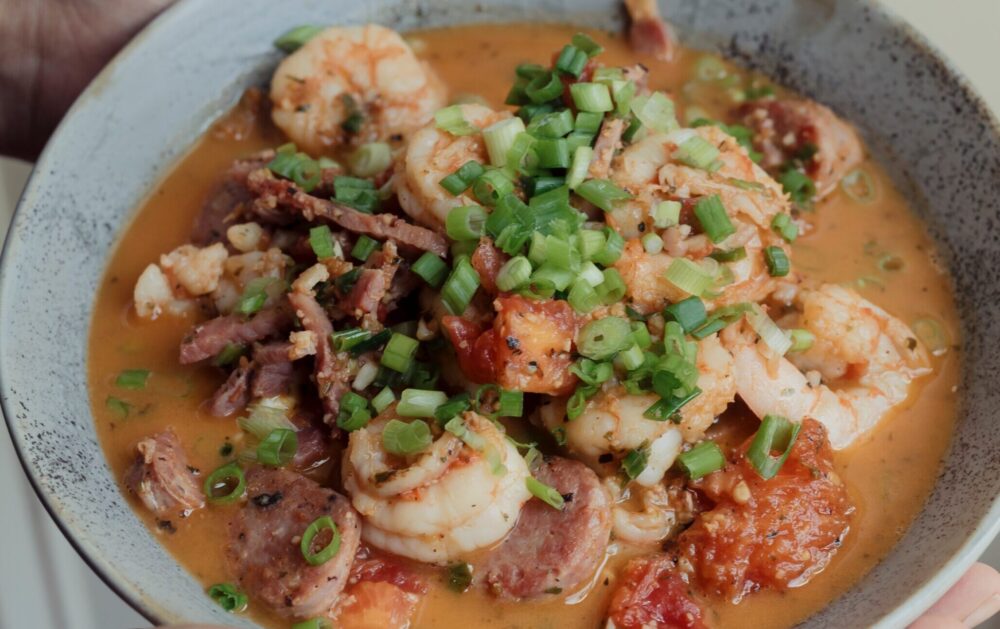By Dr. Jonathan C. Augustine
Othering in America
On September 10, 2024, during a United States presidential candidate debate between Kamala Harris and Donald Trump, America witnessed a regrettable but predictable case of “othering.” Trump alleged America’s immigration problems had become so severe that, in Springfield, Ohio, illegally admitted Haitian immigrants were reported to have stolen household pets and were literally eating cats and dogs. Although the debate moderators fact-checked Trump’s assertion and indicated the city manager debunked such claims as lacking any factual basis, Trump doubled down, asserting that the city manager had not reported the truth. The following day, on September 11–the 23rd anniversary of the most horrific terrorist attack on United States soil—Springfield received multiple bomb threats, schools were forced to close, and legally-admitted Haitian-Americans were subjected to the violent politics of othering.
To place othering in context, it is a type of xenophobia, rooted in an alienating fear of people or groups that are somehow “different” from the majority. Othering is based on a political polarization of “us vs. them” that is socially hierarchal, placing the “other” in a position of “less than” when compared to the majority group. Othering manifests in racially, ethnically, or gender-motivated practices that marginalize “the other” through social constructs. Examples include racialized voter suppression policies that marginalize Blacks, antisemitic practices that marginalize Jews, immigration policies that vilify Muslims, and pay disparities that subjugate women.
Othering has also manifested through the rise of (White) Christian nationalism, associated with the Great Replacement Theory, also called the White Replacement Theory. It is a belief that there is a deliberate effort to replace the White population in Western countries with non-White, non-European immigrants. Proponents of this theory argue that this so-called “replacement” is a result of immigration policies, declining birth rates among White populations, and multiculturalism, all of which will result in the dilution or destruction of Western, White-majority societies. Its divisiveness has manifested through multiple violent incidents in recent years: the 2015 mass shooting at Mother Emanuel AME Church in Charleston, South Carolina; the 2019 so-called “Unite the Right” rally in Charlottesville, Virginia; the 2022 mass shooting at a Tops Grocery Store in Buffalo, New York; and the January 6, 2021 insurrection of the United States government in Washington, D.C.
The question now is whether America’s—and the South’s—sociopolitical palate will crave a bland soup or diversified gumbo in years to come.
A Recipe for Gumbo, Instead of Soup
Given the frequency by which America has witnessed othering, recent years have stoked racialized tensions where some have evidenced a penchant for soup. Although some may want soup, America deserves gumbo. As an analogy of yesteryear, calling America a “melting pot” suggests that, rather than authentic acceptance, “others” must melt down to assimilate within the dominant culture. With politicized book bans, rallies against a false boogieman called Critical Race Theory, and anti-Diversity-Equity-Inclusion structures in several southern states, the melting pot makes America an amalgamated puree.
With a nod toward my hometown of New Orleans, Louisiana, I began the book Called to Reconciliation by advocating for the diversity of gumbo and rejecting the blandness of soup. Gumbo is a richly diverse delicacy that celebrates the gift of individuality, while also creating something special in community. The book also celebrates diversity, both identity and cognitive, as making America and, for our focus, the South, a place where business and culture can thrive. Identity diversity celebrates human authenticity, in how people self-identity, whether by race, gender, geography, or ethnicity. Cognitive diversity honors different disciplines in the academic context, but more broadly it recognizes that different ways of thinking about common issues lead to greater creativity and solutions to common issues. Indeed, Called to Reconciliation highlights how businesses thrive through diversity, as does culture.
Additionally, there is also no replacement theory in gumbo. Rather than being in competition with one another, the diverse ingredients complement each other, without being something they are not. Shrimp can authentically be shrimp. Chicken can authentically be chicken. Sausage can authentically be sausage. And okra can authentically be okra.
As America charters a course for her future, both politically and culturally, it is imperative to create communities of belonging. That means cooking gumbo and rejecting the otherism of soup.

Dr. Jonathan C. Augustine serves as senior pastor of St. Joseph AME Church (Durham, N.C.) and as a member of the faculty at the Hampton University School of Religion. He is the author of numerous books, including When Prophets Preach: Leadership and the Politics of the Pulpit (2023) and Called to Reconciliation: How the Church Can Model Justice, Diversity, and Inclusion (2022), along with multiple professional articles. More information about the author can be found at www.jayaugustine.com. He may be reached on social media platforms via @jayaugustine9.
Banner image credit: Adobe Stock Image



